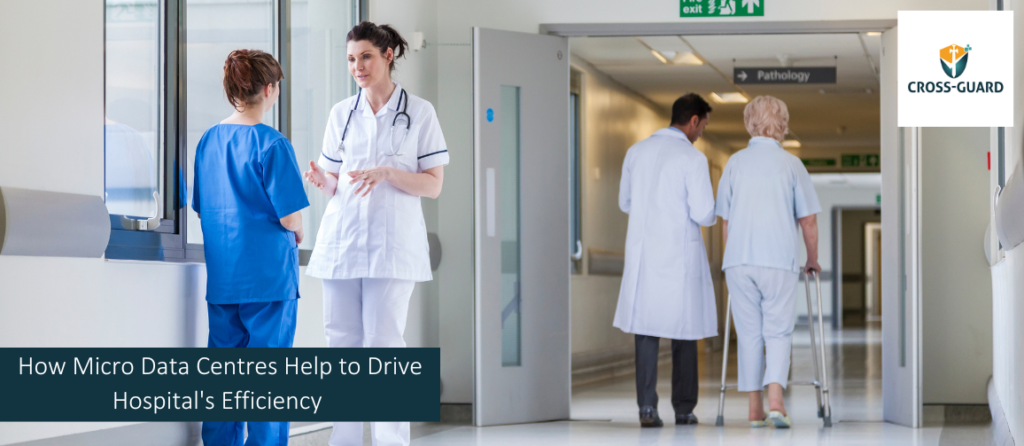How Micro Data Centres Help to Drive Hospital’s Efficiency

The critical nature of hospitals and healthcare facilities requires hospitals to be built around a philosophy of highly efficient services. The ability to manage the data generated daily is increasingly critical to a hospital’s reputation for efficiency and professionalism.
A huge amount of people suffer conflicting effects due to inaccurate medical records that can affect testing, treatment and inaccurate diagnosis. Micro Data Centres are set to help hospitals substantially to reduce the number of inaccurate medical records, helping to aid better medical decisions.
Impact on sustainability
Hospitals are large consumers of energy as much of the hospital’s energy usage stems from lightning, heating, cooling and ventilation and hot water heating. Energy-consuming technology such as electronic imagining requirements and digital record-keeping add to this load. However, most of these costs are unnecessary as new technologies allow healthcare facility staff easy access to screens that control energy consumption in patient rooms. Sensors within the rooms gather data about energy consumption, comfort and safety data. Building analytics software converts the data into actionable intelligence, which increases the facility’s energy efficiency and boosts patient satisfaction.
Challenges due to the pandemic
The pandemic has caused huge complications in improving hospital efficiencies. Hospitals have experienced backlogs, which can cause delays in patient treatments. Furthermore, rural hospitals have experienced the challenges of providing patients with access to highly skilled medical professionals given their remote settings. Most healthcare facilities don’t yet have the technology to support such systems. Reporting and electronic medical records are one of the areas often affected. With little or no access to patient history, many hospitals have difficulty sharing data with other hospitals.
Innovations in edge computing technology are improving connectivity, and high-efficiency power and cooling are helping hospitals and healthcare facilities to:
- reduce costs
- improve operational efficiency and sustainability
- enable a better patient experience
- improve profitability
Most hospitals today have a small or medium data centre on-premise primarily used to archive records. But with the increased availability of Internet of Things (IoT) technologies, significantly more devices and sensors are being connected. A huge amount of data is flowing back and forth between departments and healthcare facilities. As seen from the data, Data Centres help to aid the process of reducing the number of inaccurate medical records, helping to aid better medical decisions, reducing the impact on the environment and sorting out the data safely.
SHARE
DOWNLOAD A COPY OF OUR BROCHURE

